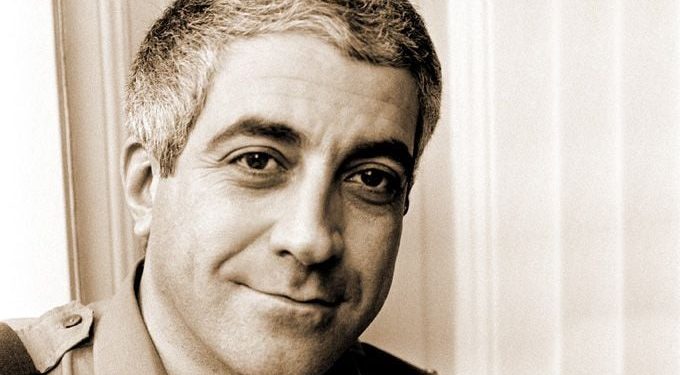By Gil Garcia, a leader of the Socialist Alternative Movement (MAS) in Portugal
26 July 2021
A sad day: Otelo Saraiva de Carvalho passed away. I would like to offer my condolences to his family and friends.
If there is one situation that will remain for many centuries noble, gigantic, just, and necessary, it will be the one in which Otelo was an inescapable leader. The military coup of 25 April overthrew the longest dictatorship in European history, the fascist dictatorship of Salazar and Caetano.
25 April itself (the military coup organised by Otelo and his “comrades-in-arms”) was not the result of one man, of a movement of captains or even of the military genius of the coup’s author. The 25 April 1974 results from a set of variables that led the military.
The resistance of the Portuguese people (workers, peasants and student youth) was present, especially in the last years of the dictatorship, although not the sole driving force behind the coup. What was decisive was the armed resistance of the African people, who rose heroically against centuries of colonisation and slavery. This uprising, practically simultaneously in Angola, Mozambique, Guinea and Cape Verde, caused systematic casualties in the Portuguese army, opening a crisis in the “morale of the troops” in charge of repression and the regime. All these factors “pushed” Othello and the others to put an end to the Salazar regime.
We should remember Otelo with admiration and merit for the preparation, development and success of the 25 April coup. We should recall the role he played on that day and the historic and progressive role that “coup” played in bringing down a regime in which PIDE (International and State Police), dictatorship, torture, imprisonment, and death were the norm.
I have never felt, nor have I ever been, an Otelist at “heart” and “reason”. Not even when he stood in several presidential elections. The movement under his – quite progressive – prestige should have supported him in his first candidacy in 1976. I understand that now.
However, after 25 April, Otelo, to be honest, made many mistakes and errors. Perhaps because he lacked the political and theoretical training (even less of a revolutionary Marxist – but very few had it back then!) for the challenge that opened up after the military coup, for the revolution (not to be confused with the coup) people embarked on in the street, on their initiative and strength.
The emergence of PREC (Ongoing Revolutionary Process) showed that neither Otelo nor any of the MFA military was up to the demands of the ongoing process. Least of all, the parties that should lead to the promised and longed-for “socialism” or “socialism with freedom”. Thus, the unprepared Otelo soon became involved in the COPCONs (repression). He played a role full of contradictions and, in its worst phase, in the unjustified and counterproductive adventure of the FP-25 (far-left terrorist group), as they became known.
A handful of “brave” people with guns in their hands cannot achieve what the so-called socialist, democratic and popular parties, or the rebuilt communist party (a leadership responsible for the setback of the Portuguese revolution unleashed on 25 April 1974). The lack of revolutionary leadership jeopardises the success of a revolution.
Today, it is most relevant to remember the coup’s success, Otelo’s leadership, his commitment to putting his life at risk in preparing for the fall of the dictatorial regime – when new reactionary and neo-fascist forces are on the ground to go back to 24 April! -and to hope that future generations will rise to the challenges of a new revolution.













